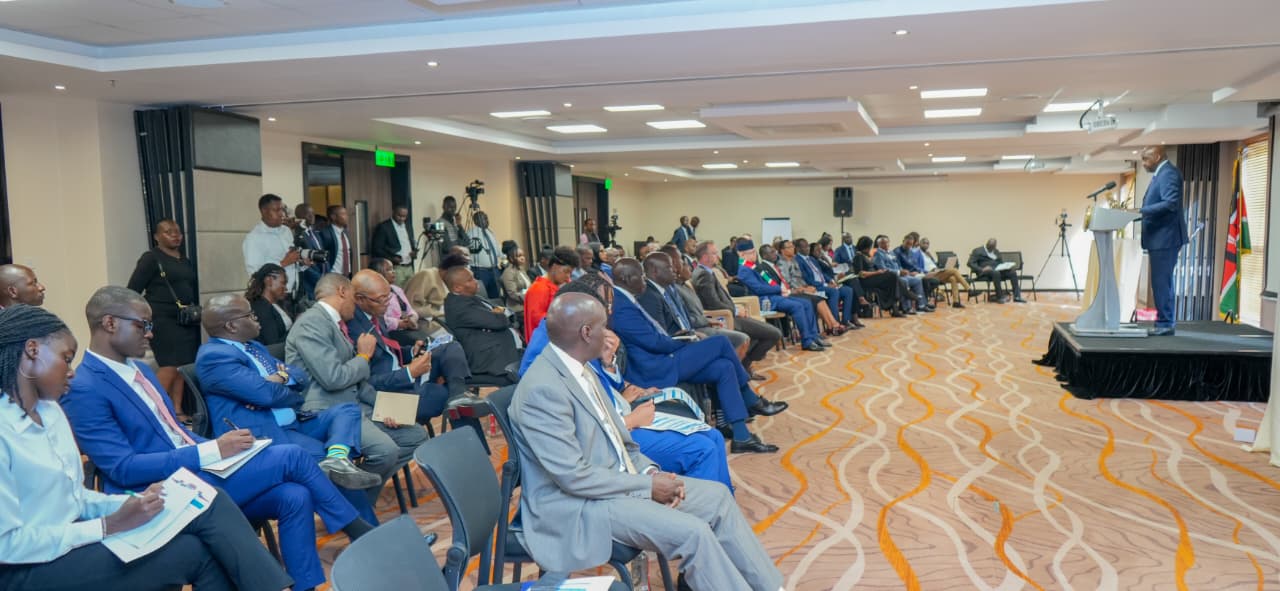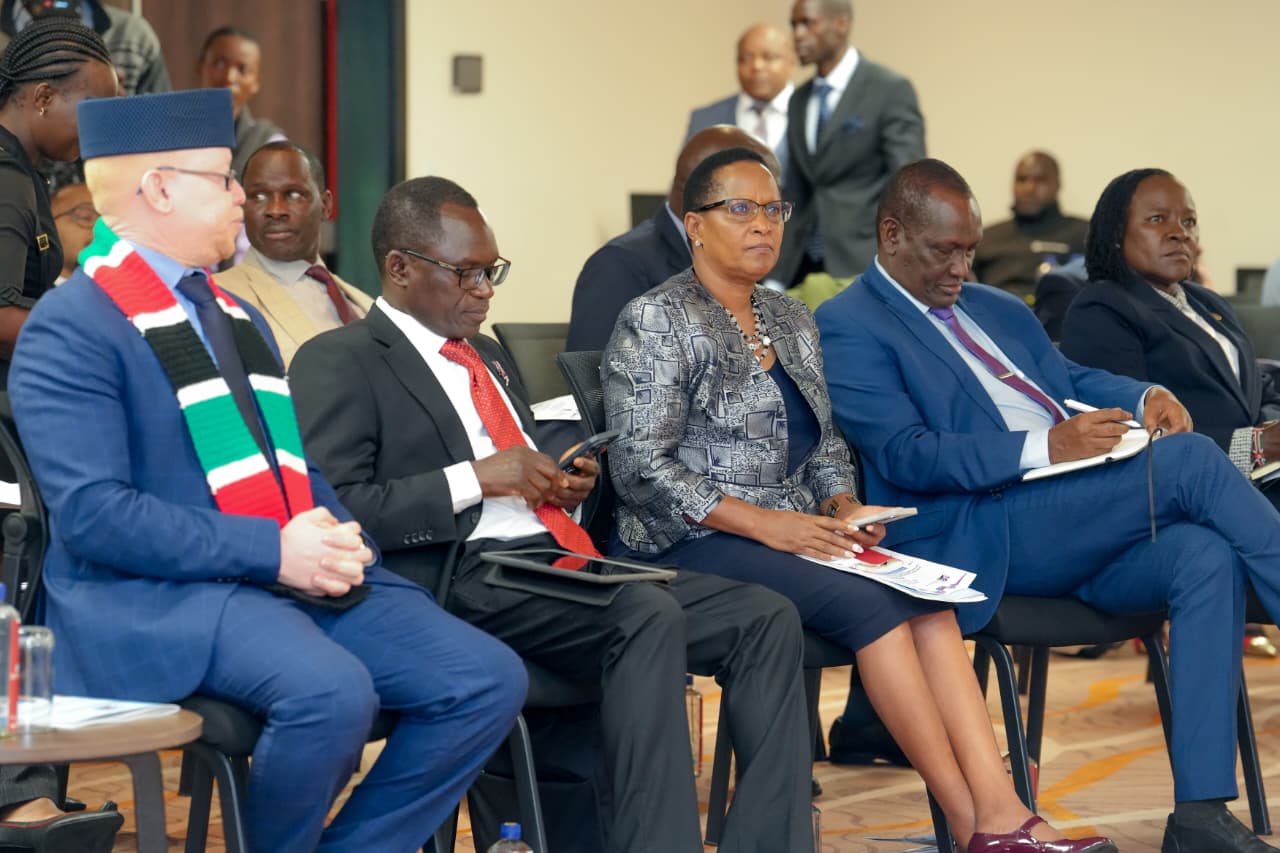

Living in an era where citizens' trust in government hinges on
transparency and accountability, inclusive communication becomes a vital tool
for tracking sentiments on public service delivery.
Under such circumstances, the success of government programs increasingly
depends not just on implementation but also on how effectively and equitably
information is shared across all demographics and regions, ranging from the
youth, marginalised communities, the aged, and persons with disabilities.
Ensuring that every voice is heard and every group is informed is no
longer optional but an obligation for responsive and people-centred governance.
This form of governance came to the fore last week when half of the
Principal Secretaries from across the ministries gathered at the Trade Mark
Hotel, Gigiri, for a strategic engagement on the enhancement of government
communication through digital innovation, Artificial Intelligence (AI), and
inclusive communication practices.
In a speech read on his behalf by his deputy, Amos Gathecha, Head of
Public Service Felix Koskei reiterated his commitment to ensuring proper
service delivery by government officials through sharing of experiences in what
he described as “moments of learning.”
His consistency in ensuring frequent consultative meetings of government
officials has brought about cohesion in having one government voice that is
trustworthy and has helped greatly in avoiding misinformation and
disinformation.
Koskei emphasised the need to embrace social media in content
creation and dissemination for government communication.
"Social media is shaping narratives faster than any other media. If
properly used, it will unite Kenyans with the government if the content
provided is clear and credible.
Artificial Intelligence (AI) should be used to regulate and innovate
constructive information for consumption. Social media platforms can be used to
inform, resonate, and engage when constructively used," the Head of Public
Service said.
Explaining the objective of the forum, Government Spokesperson Dr. Isaac
Mwaura expressed the need to tailor communication to meet the needs of various
groups in Kenya for government communication to succeed.

"We need to think of a way to tailor our communication so as to meet
the needs of the various groups in our country, from the youth to the aged and
from marginalised communities to persons with disabilities. This will bring
about transparency while discarding distorted narratives and
disinformation," Sen. Mwaura declared.
The Permanent Secretary, State Department for Broadcasting and
Telecommunications, Stephen Isaboke, underscored the importance of
communication for effective government operations and public engagement, hence building
trust with the public.
"Fact-checking should be relentless and consistent, as well as
responses to various questions that arise from the public. Any delays from the
government lead to fake and false news being developed and videos fabricating
the truth being produced. Once this happens, the public loses trust in us, and
everything else said becomes 'lies'," PS Isaboke noted.
From the conversations held, it was clear that an average Kenyan spends 4
hours and 30 minutes on the internet, indicating that screen time in Kenya is
much higher than in many other countries. The question raised was, "For
all this time on the internet, what kind of content is being consumed?"
In the process of government communication, several gaps were identified,
among them the credibility of the content.
"What is spoken at the high levels is not what is spoken at the
lower levels. Therefore, by the time the information reaches Kenyans,
everything is labelled as untrue and fake," the Government Spokesperson
observed.
To resolve this, State Departments were advised to seek clarification
from the right sources of government information.
Dr. Mwaura said his office was mandated to state, defend, and clarify
government positions, insisting that “the genius of government communication
was creative repetition blended with political communication as the mother of
all communications.”
On matters of inclusive communication, persons with disabilities were not
forgotten. Mr. Simon Wachira from Thinkout Africa called for all government
content, either in video formats or text, posted on social media and websites,
to be inclusive and include a translator and disability logo so as to make
persons with disabilities more involved.
"Information is now a right. People living in marginalised areas are
no exception. Since their network is poor, the government should leverage
community media stations to strengthen citizen digital literacy and collaborate
with them in the fight against misinformation and disinformation. If need be,
all content disseminated in English should be translated into a language that
is easy to understand," Mr. Wachira advised.
Director, Africa Strategic Communication Hub, Chris Wangalwa, was
more strategic on how the use of AI and social media can transform government
communication, noting that if properly used, the technology could craft
messages that resonate with every group in society.
"Social media, if used quantitatively and qualitatively, would yield
outcomes that immensely surprise many in a positive manner. Dominance will be
attained, attitudes will be shaped, and behaviour will be influenced," Wangalwa
said.
Content creation, he noted, was becoming the new norm and urged
government communicators to come up with content that connects with people
emotionally for effective and relevant feedback.
“Leveraging social planning and using relevant media monitoring tools
ensures that information disseminated from government becomes more believable.
“TikTok and X, formerly called Twitter, are now the platforms used to
capture a wide audience and provide unfiltered feedback for improved content.
Leveraging them and analyzing their comment sections objectively would
definitely shape the future of government communication,” he emphasised.
As the way forward, PS Isaboke announced that his state department had
formulated a strategic plan that would smoothly guide government communication.
This, he said, would be actualized through a National Communication
Policy which has been developed and is due for cabinet approval.
“The policy encourages all ministries, departments, and agencies (MDAs)
to have social media presence for enhanced dissemination of information on
government policy and agenda.”
Additionally, the proposed amendment of the KICA Act to regulate digital
platforms is envisaged to enhance content ownership and enforce the necessary
action against those who spread fake and untrue information.
Capacity building for public communication officers and information
officers in MDAs on the use of new media and AI to communicate effectively is
ongoing at the Kenya School of Government campuses, with the aim of equipping
them with knowledge on the effective use of AI, it was announced.
Oprah Nyaboke works at the Office of Government Spokesperson
















